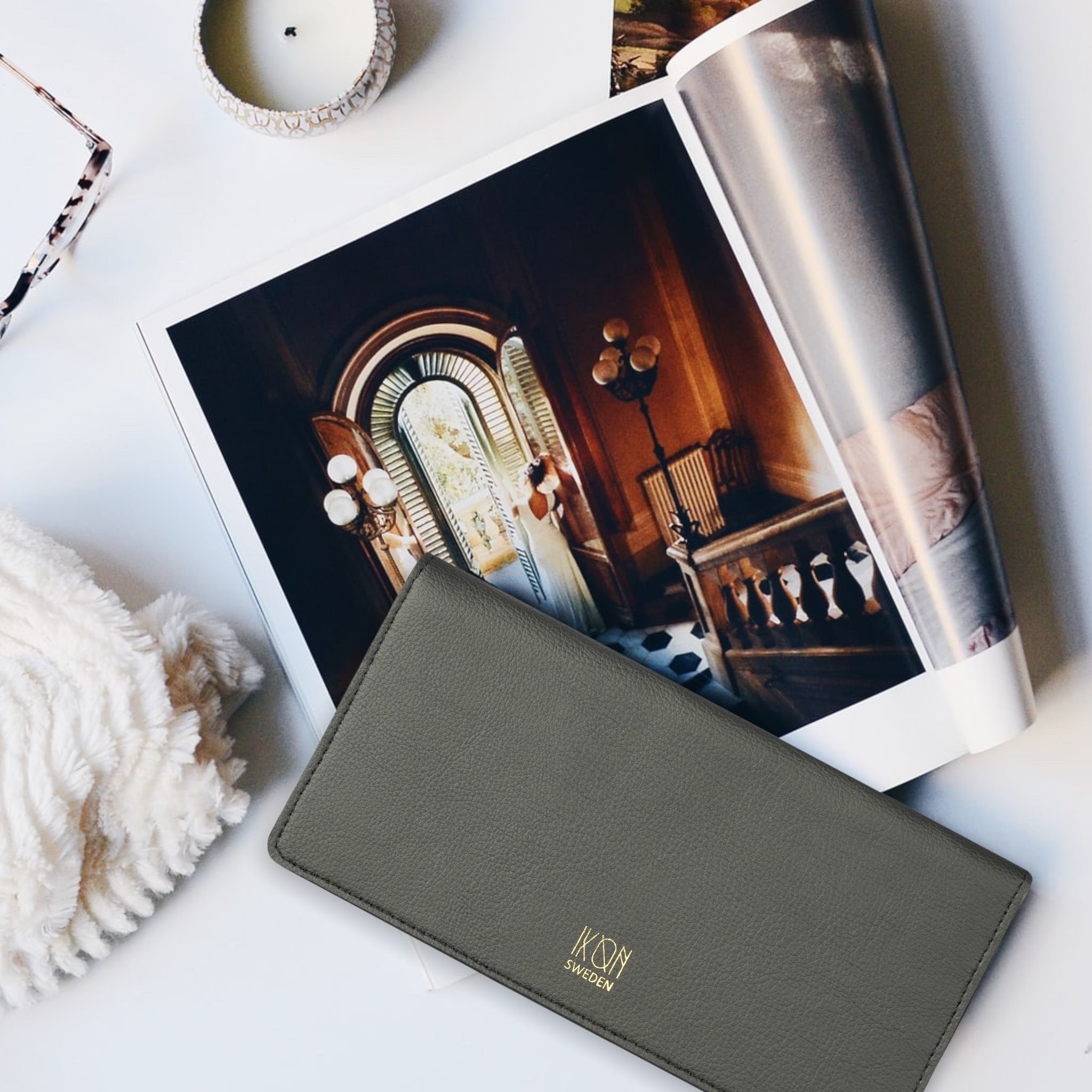INTERVIEW #91 IKON SWEDEN
Based in: Stockholm, Sweden
Founded in: 2021
Founded by: Kamal Singh
Store: www.ikonsweden.com, shipping worldwide
Price range: 399 - 1099 SEK
Instagram: @ikonsweden
Welcome to A Sustainable Closet, can you please tell us more about Ikon Sweden and why did you start this brand?
IKON SWEDEN is a high-end sustainable and vegan leather brand based in Stockholm. We offer a stylish selection of sustainable vegan leather products for men and women. All our products are designed to be friendly for animals and the environment while providing a long-lived leather-like user experience.
Can you tell us more about yourself?
My name is Kamal Singh and I am the founder of the brand IKON SWEDEN which has its headquarters in Stockholm. Leather has always fascinated me as luxurious and high-quality material, but when I took a closer look at the processes used in the production, I found it problematic both from an animal perspective and the environment. The negative impact of the leather industry, everything from water pollution to increased carbon emissions as well as the use of toxic materials, which are bad for the health of workers in the leather industry, inspired me to begin my search for better alternatives.
IKON Sweden is doing all it can to bring eco-materials into use including lining and packing as well. Our products are 100% handmade by the best Indian artisans. The end products are proof of their distinguished expertise and knowledge.
What materials are you using and how come you are focusing on wallets?
We use new innovative materials like ecological plant-based leathers made of coconut, cork, cactus, and apple. All these materials are totally free from harmful PVC, which is normally used in most vegan leather products and is very bad for the environment. Some of these materials like apple leather and cactus leather have a coating of PU but another innovative material like coconut leather is 100% free from any plastic content and 100% biodegradable.
All our designs are minimalistic and simple. The designs are made keeping in mind the usability and need of consumers. We have started our first collection with small products like wallets for men and women in coconut, cactus and cork leather but we are coming soon with the next series of the collection having crossbody bags and handbags made from coconut and apple leather. Even for our packaging, we use 100% biodegradable cotton canvas pouches. Promoting sustainability, we want the packaging to be abled to be REUSED instead of just ending in the trash bins.
Where are the products produced and how do you work to guarantee workers' rights?
The production is done in a small family production house in India, so we closely ensure the environment and working conditions. Also working with small artisans help us provide better financial opportunities for them.
What have been and are the major challenges with starting your own brand?
The major challenge is working with these new innovative materials which look and feel like leather but are different when it comes to production because of which the process from beginning to end is mostly manual and handmade.
Another challenge is to put our word out and make people aware of the sustainability aspects, especially the price structures of the different materials or products and the positive or negative impact on the environment. We appreciate the efforts of platforms like A Sustainable Closet to help us on our mission to reach larger audiences and spread the word.
Customers have to be made aware that sustainable products are expensive from their cheap versions because all the process from the production of material, to the making of products like wallets or bags, is done in a fair way along with taking care of the health and working conditions of artisans. Then the effort is always to use the best possible ways to create packaging which could be expensive but environment friendly. Deliveries or transportation are chosen to minimise carbon emissions and their impact on the environment. All these things add up to the cost of a sustainable product whereas when you buy a cheap version, not only the quality is cheap but the process of production is also somewhat not ethical.
What do you believe is “greenwashing” and what can producers and consumers do to avoid it?
Using PVC as a vegan leather material and then terming it as animal-friendly is greenwashing. I agree that plastic material does not involve the killing of animals but when it ends up in oceans, it does kill animals.
On the other hand, leather is termed as a by-product of the animal industry but no one tells about the pollution it creates, the toxic chemicals it uses leading to health problems for workers and how it, despite being an animal skin, do not biodegrade.
More transparency is needed by brands about materials, the process of production and the environmental impact. As well as educating the consumer, is a start toward a more sustainable fashion industry.
What would you advise consumers to do who seek to create a sustainable closet and lifestyle?
There is no harm in buying what you love, but evaluate what impact it has on the environment, people and animals and make the best choice. Sustainability does not limit or refrain you from enjoying fashion, it motivates you to do it consciously.





